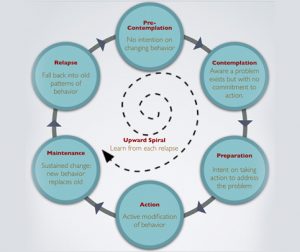Managing Multiple Sclerosis – Changing Bad Habits for Good!
By now we we are starting to see which one of our New Year’s resolutions will stick and which ones will go the way of the dodo. Usually, the changes we’re trying to make are related to personal wellbeing – health, weight, stress and lifestyle management and so on. Sadly, old patterns are harder to break than we anticipate, and these resolutions end up being as fleeting as the breath to espouse them – why? Because part of their success means understanding how to create lasting change – when do we ever learn that? No-one ever taught us how to do that, so let’s get on it!
Over the years I have noticed three key concepts that differentiate people in their ability to follow through on their resolve to make things better.
- Make your commitment real. Any change requires new patterns and new patterns require more than a couple of weeks to embed. The first few weeks may include a lot of positive self-talk or visualization just to keep you on track. Post your affirmations around the house, setup safety nets to catch you if you waver and if you do “fall of the wagon” don’t throw your arms up in surrender. Stop, breathe, and resume. All is not lost in one moment of “weakness.” Remember your commitment to change be firm but forgiving with yourself.
- BELIEVE in your mission. Science has backed what us Naturopaths have been telling you for decades (or longer), your success depends so much on how you see yourself and whether you truly BELIEVE in what you’re doing. This is a good place for more visualization and positive affirmations.
- Understand that there really is a “cycle of change” and you can step in and out of it at any stage as many times as you need before your desired change becomes a reality.
The cycle of change has 6 stages (study the diagram):
-
- Pre-contemplation – at this point you have no intention on changing your behaviour. Others may realize that a little change may actually serve you, but you don’t.

- Contemplation – at his point you may realize there is a problem but be feeling stuck, wishing there were something you could do but not knowing how to start.
- Preparation – this is where you are committed to action, you’re just waiting for the stars to align before you start.
- Action – you do it! You modify your behaviour and your surroundings to support the change you’ve been preparing for.
- Maintenance – Acquiring new skills, avoiding temptation, maintaining the new behaviour that has fully replaced the old one.
- Termination or Relapse – Termination (of the cycle of change) happens when the new behaviour is so entrenched that you don’t even think about it – a transformation if you will. Relapse is a very clinical-sounding term for falling off the wagon. At which point you pick yourself up, dust yourself off and get right back on that wagon and enter the cycle wherever it was you fell out.
- Pre-contemplation – at this point you have no intention on changing your behaviour. Others may realize that a little change may actually serve you, but you don’t.
No shame, no blame, no judgment. You may find it comforting to know that most people go through the cycle at least twice before a change becomes a new habit.
So there you go, a super powerful tool to help you on your road to health recovery and maintenance in 2022 and beyond.

